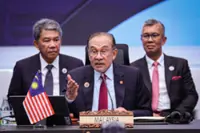AS countries around the globe race against time to tackle urgent challenges facing the planet, education has been identified as an important step to address environmental, social and economic issues in a holistic way.
Key to carrying out this game plan are teachers, who guide their students almost daily through their lessons.
Follow us on our official WhatsApp channel for breaking news alerts and key updates!
Thank you for your report!





